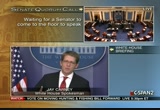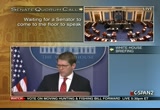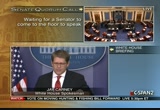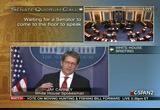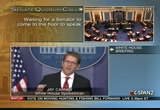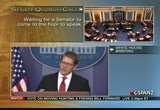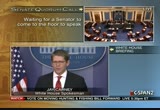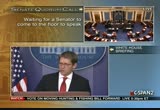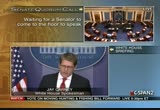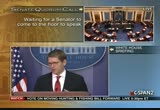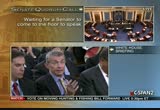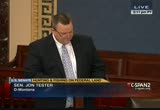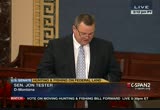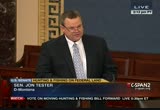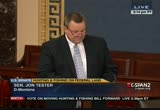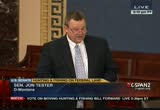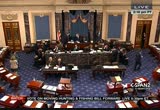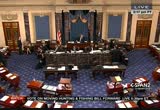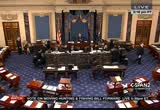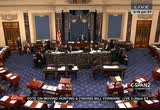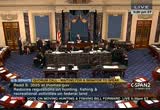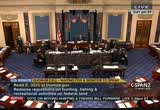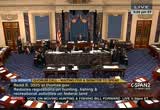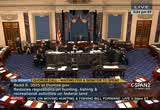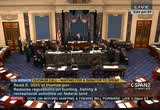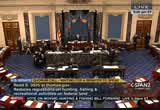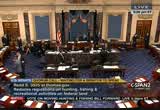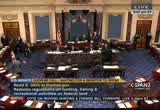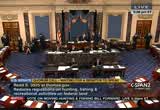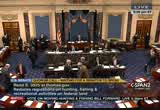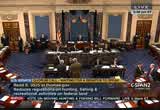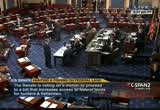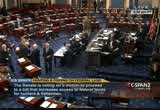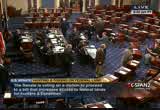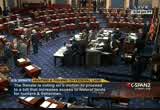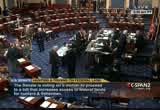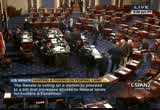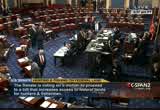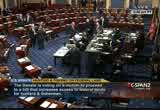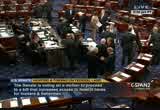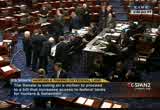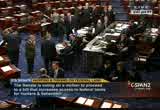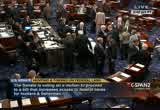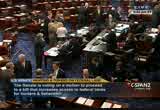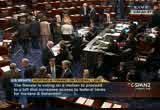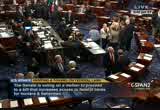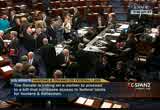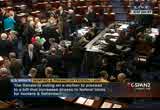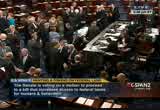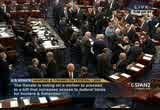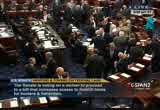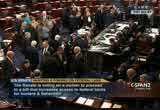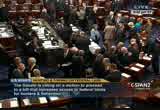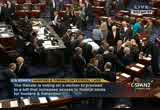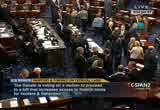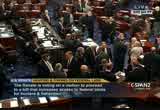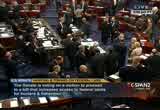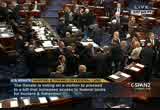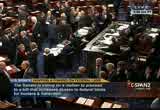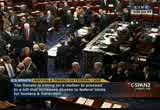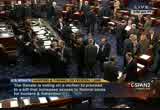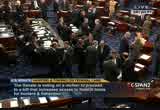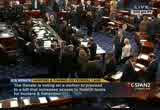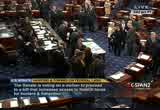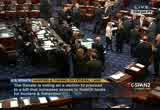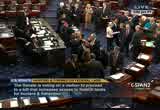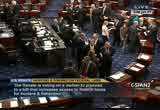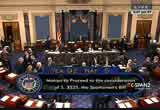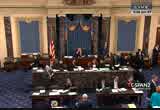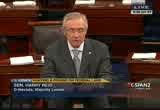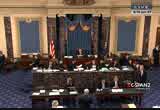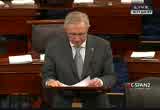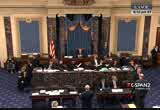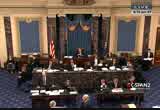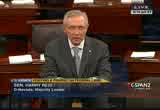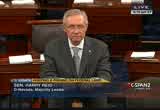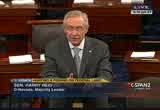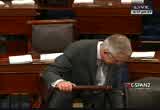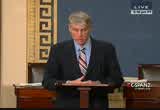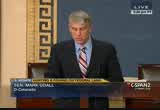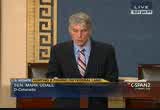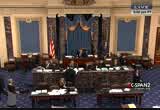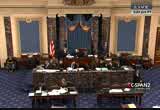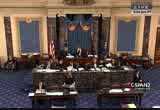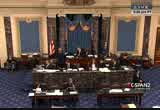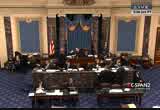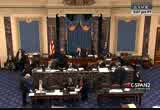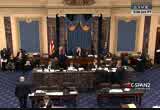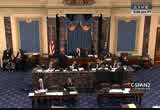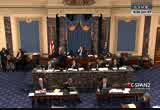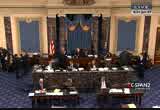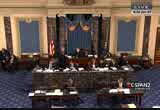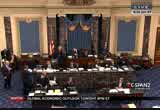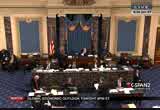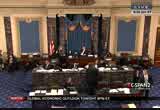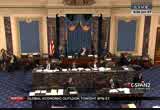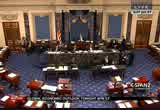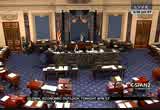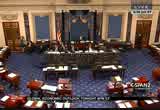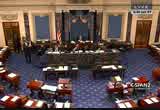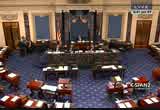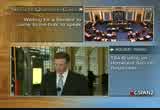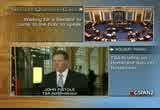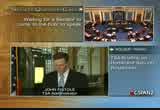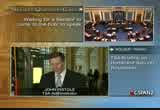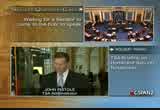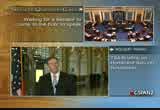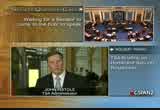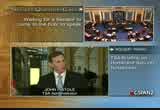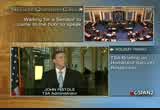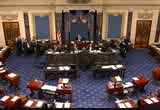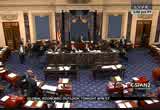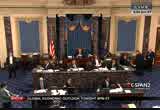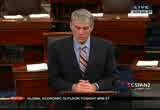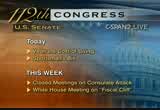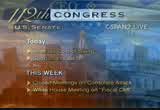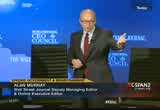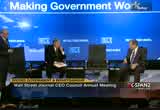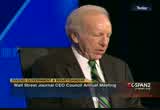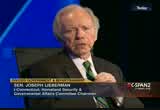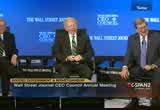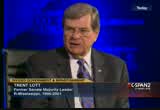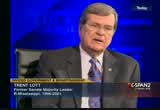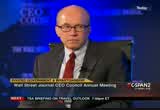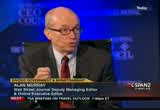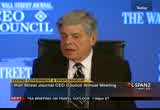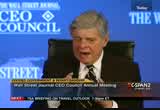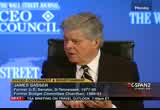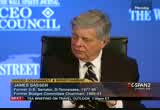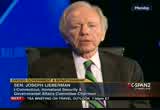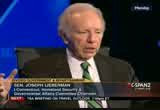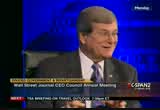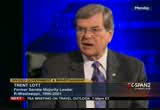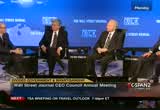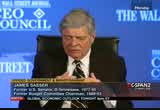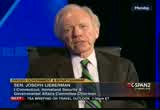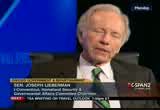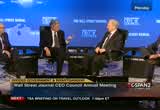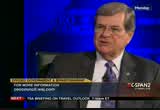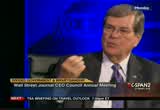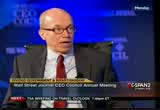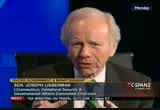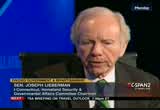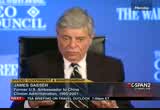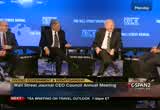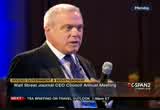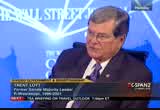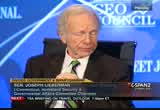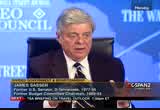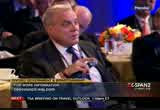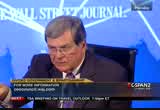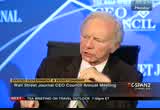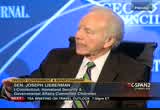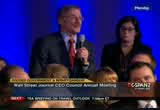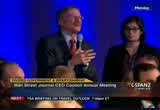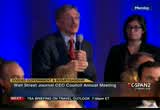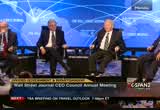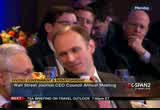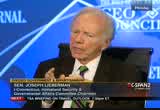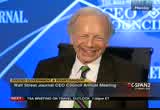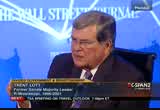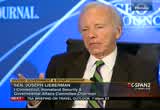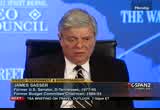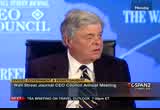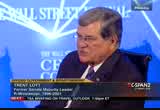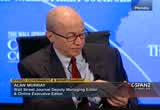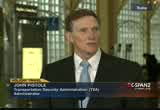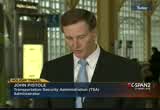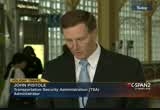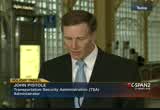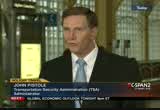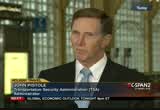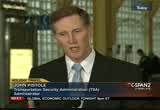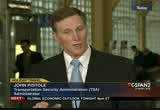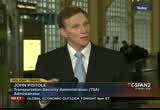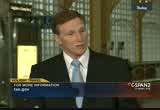tv U.S. Senate CSPAN November 13, 2012 5:00pm-8:00pm EST
5:10 pm
the presiding officer: the distinguished senator from montana. mr. tester: i ask that the quorum call be visceratedment. the presiding officer: without objection. mr. tester: i rise to urge support on the motion to proceed to my bipartisan sportsmen's act. outdoor traditions are deep and important part of our heritage, in montana and across our nation. two years ago when i became chair of the congressional sportsmen's caucus, i maude it my goal to do something significant, something historic, something responsible that will
5:11 pm
help this country's hunters and anglers. mr. president, this week we have that opportunity. this sport sports men's act coms nearly 20 different bills, all important to those who know that we must never take our outdoors for granted. these bills increase access for recreational hunting and fishing, they support land and species conservation, and they protect our hunt being and fishing rights. and most importantly, they take ideas from both sides of the political aisle. this bill isn't about democrats and it isn't about republicans or independents. this bill is about americans and the great outdoors that we all share as a nation. this bipartisan bill is supported by nearly 50 different conservation wildlife groups ranging from the national wildlife federation to the n.r.a. this earned their endorsement because it includes responsible provisions that are important to sportsmen and women across america. in my role as chairman of the
5:12 pm
congressional sportsmen's caucus, outdoors mern and women tell me about the important access to public lands. what good does it do to protect land for hunting, fishing and hiking if folks aren't able to goat to it? and right now there are some 35 million acres of public land that sportsmen can't access. that is why this bill requires at 1.5% of the annual funding from the land and water conservation fund is set aside to increase public access to public lands. ensuring sportsmen to some of the best places to hunt and fish in the country. right now the congress delegates all power to determine land water conservation funding priorities to the executive branch. we can add or subtract money from the president's budget request. congress cannot determine how that money gets spent. this provision ensures that the administration and the next one must authorize -- must prioritize access to public lands. my bill also reauthorizes the
5:13 pm
north american wetlands conservation act. this voluntary initiative provides matching grantings to landowners who set aside critical habitat for migratory birds like ducks. over the past 20 years volunteers across america have completed more than 2,000 conservation projects. they protect more than 26 million acres of habitat under this successful initiative. the north american wetlands conservation act is a smart investment in both our lands and our wildlife, and it needs to be reauthorized. this widely supported bill also reauthorizes the secretary of interior to reevaluate the price of duck starns to keen up with inflation. revenue from duck stants has been used to purchase more than 6 million acres of wet mandates preserving a viable waterfowl population. this is a responsible bill that
5:14 pm
takes into account the need of the entire sportsmen's community. why is this important? it is important because hunting and fishing and hiking is a way of life in places like montana. one in three montanans hunt big game and more than half of us fish. outdoor recreation economy across this country contributed some $646 million in direct spending to this u.s. economy. fishing and00ing is not just recreation, it is a critical part of our economy. in montana, hunting and fishing alone brings $1 billion a year to our economy. nearly as much as the state's cattle industry. it drives and sustained jobs, and with hunting season in full swing and thousands of montanaians hunting in the back country over the thanksgiving weekend, this bill is as timely as ever. mr. president, the sports men's act of 2012 is balanced, bipartisan, and widely supported. it is also fiscally responsible. the bill has no cost. mr. president, before the senate
5:15 pm
went out of session, we voted to move forward with this bill by a vote of 84-7. 84-7. it was a resounding approval to preserve some of our most productive habitat, to pass on the hunting tradition and to entrust them with the land and water we share. now it's time to get this bill across the finish line, to approve a bill with widespread support that preserves our outdoor economy and secures our outdoor heritage or our kids and grand kids. it takes some good democratic ideas and good republican ideas and pass them to do something for the 90 million sports men and women in our country and to sponsor them. the time is now. i urge all members to support the bill. i yield the floor and suggest the absence of a quorum. the presiding officer: the clerk will call the roll.
5:30 pm
6:07 pm
the presiding officer: are there any senators in the chamber wishing to vote or to change their vote? if not, the ayes are 92, the nays are 56789 the motion to proceed is agreed to. mr. reid: mr. president? the presiding officer: the majority leader. mr. reid: could we have order, please. the presiding officer: could we have order in the senate, please. the senate will come to order. please take your conversations from the well. mr. reid: mr. president? the presiding officer: the majority leader. mr. reid: on behalf of senator tester, i have a substitute amendment which is at the desk. mr. president? mr. president? the presiding officer: the majority leader. mr. reid: before the clerk reports --
6:08 pm
could we have order. the presiding officer: the senate will come to order. please take your conversations to the cloakroom. the clerk will report the bill. mr. reid: mr. president? the presiding officer: the majority leader. mr. reid reid: mr. president? the presiding officer: the majority leader. mr. reid: mr. president, the bill has not been reported, is that right? the presiding officer: the senator is correct. the clerk: calendar number 504, s. 3525, a bill to protect and enhance tiewns for recreational hunting, fishing and shooting and for other purposes. mr. reid: i ask for the yeas and nays. oh, i'm sorry, mr. president. i didn't realize the bill hadn't been record. mr. president, on behalf of senator test, i have a substitute amendment which is at the desk. the presiding officer: the clerk will report. mr. reid reid: okay, now i wanto say something. okay? the presiding officer: the majority leader. mr. reid: mr. president, it is
6:09 pm
really a shame. we have a bill that is bipartisan. cloture's already been invoked on it. we are on the bill. why in the world will we have -- why can't we just finish this bill, have a couple of amendments and go on? i -- i'm going to go ahead and i'm going to fill the tree, and i'm sure i will get some outrageous response back, as if we're still in the presidential election, saying we want this many amendments. we're not going to have that many amendments. this is a bipartisan bill. people are going to have the opportunity to vote for or against this bill. if they want to kill the bill, they can kill the bill. one of the most popular bills we did all last congress. and we didn't do many but this was one of them that was popular. i just can't imagine why we're still trying to refight an election that took place a week ago. so the clerk's going to report the substitute amendment. the clerk: the senator from
6:10 pm
nevada, mr. reid, for mr. tester, proposes amendment numbered 2875. mr. reid: i ask for the yeas and nays. the presiding officer: is there a sufficient second? there appears to be. the yeas and nays are ordered. mr. reid: i now ask a first-degree amendment at the desk. the presiding officer: the clerk will report. the clerk: the senator from nevada, mr. reid, proposes amendment numbered 2876 to amendment numbered 2875. mr. reid: i ask for the yeas and nays on that amendment. the presiding officer: is there a sufficient second? there appears to be. the yeas and nays are ordered. mr. reid: i have a second-degree amendment at the desk. the presiding officer: the clerk will report. the clerk: the senator from nevada, mr. reid, proposes an amendment numbered 2877 to amendment numbered 2876. mr. reid: i have an amendment at the desk to the language that is proposed to be stricken. the presiding officer: the clerk will report. the clerk: the senator from nevada, mr. reid, proposes amendment numbered 2878 to the language proposed to be stricken
6:11 pm
by amendment number 2875. mr. reid: i ask for the yeas and nays on that amendment. the presiding officer: is there a sufficient second? there appears to be. the yeas and nays are ordered. mr. reid: i have a second-degree amendment at the desk. the presiding officer: the clerk will report. the clerk: the senator from nevada, mr. reid, proposes amendment numbered 2879 to amendment numbered 2878. mr. reid: i have a motion to commit the bill with instructions. the presiding officer: the clerk will report. the clerk: the senator from nevada, mr. reid, moves to commit the bill, s. 3525 to the committee on energy with instructions to report back the following amendment, number 2880. mr. reid: i ask for the yeas and nays on that motion. the presiding officer: is there a sufficient second? there appears to be. the yeas and nays are ordered. mr. reid: i have an amendment to the instructions. that's also at the desk.
6:12 pm
the presiding officer: the clerk will report. the clerk: the senator from nevada, mr. reid, proposes amendment numbered 2881 to the instructions on the motion to commit s. 3525. mr. reid: i ask for the yeas and nays on that amendment. the presiding officer: is there a sufficient second? there appears to be. the yeas and nays are ordered. mr. reid: i have a second-degree amendment at the desk. the presiding officer: the clerk will report. the clerk: the senator from nevada, mr. reid, proposes amendment numbered 2882 to amendment numbered 2881. mr. reid: i have a cloture motion on the bill that is already at the desk. the presiding officer: the clerk will report. the clerk: cloture motion. we, the undersigned senators in accordance with the provisions of rule 22 of the standing rules of the senate, hereby move to bring to a close, the debate on s. 3525, a bill to protect and enhance opportunities for recreational hunting, fishing and shooting and for other purposes. signed by 17 senators as followed: reid of nevada, tester, conrad, mansion,
6:13 pm
bingaman, rockefeller, cardin, nelson of nebraska, pryor, shaheen, coons, klobuchar, webb, warner and bennet. mr. reid: i ask consent that the mandatory quorum require under rule 22 be waived. the presiding officer: is there objection? without objection, so ordered. mr. reid: i now move to proceed to calendar number 419. the presiding officer: the clerk will report. the clerk: the senator from nevada moves to proceed to calendar number 419, s. 3525, a bill to authorize appropriations for fiscal year 2013 for military activities of the department of defense, for military construction and for defense activities of the department of energy to proscribe military personnel strengths for such fiscal year and for other purposes. mr. reid: mr. president? the presiding officer: the majority leader. mr. reid: we're going to complete work on this bill; that
6:14 pm
is, the one that we had the -- prior to the clerk announcing the defense authorization bill. we're going to complete the work on the sportsmen's bill before we go home for thanksgiving. people are going to have an opportunity to vote for that bill, either for or against it. and -- as i indicated, it's a widely popular bill. and if the republicans want to drag it down, kill it like they have a lot of other things, they're going to have that opportunity to do that. we have more than 20 bills that are important to sportsmen around the country. i, as i said a few minutes ago, i can't imagine why we're still fighting the battles of the last election. we're going to have a vote on cybersecurity. i spoke to the chairman of the committee a short time ago, senator lieberman. he's going to come over tomorrow and give a speech about the importance of this legislation. he and senator collins have worked so hard to come up with a bill. they have compromised and compromised and compromised to
6:15 pm
point that we shouldn't -- the presiding officer: the majority leader. mr. reid: to the point where, mr. president, people are going to have an opportunity to vote on this also. senator lieberman's going to talk about how important this bill is to protect our country. i just had a -- i left the white house an hour or two ago. abc news they believe -- the president of the united states believes the cybersecurity bill is one of the most important things facing this country now -- not next congress, now. i a said on a number of occasions, the pentagon, the intelligence community believe that this legislation is vitally to the safety and security of our country. so before thanksgiving, we're going to finish the sports men's bill, we're going to have -- the
6:16 pm
republicans need to kill the cybersecurity bill. they've been following the lead of the chamber of commerce, which is an arm of the republican party anymore. it is just a front for the republican party. they spend huge amounts of money that they get from unknown sources to defeat democrats. they wasted their money this time, but that's the way it is. they are opposing this bill for not any logical reason. then we -- senator levin and mccain have asked to go to defense authorization. i think if this bill is as important as they say it is -- and they say it is important; i know how senator levin and senator mccain feel about it -- looks like they would clear away some of this stuff that's getting in the way. but that's where we are. i think it is religionly a bridge too far to complete the defense authorization bill before we leave but we need to get on this bill.
6:17 pm
we're not going to stall around on this and spend weeks on the defense authorization bill. i have told the two managers of that bill, senator mccain and levin, that that's the case. so having said that, that's what we have to do before thanksgiving. i would like to be able to get out of here so we could go home to our states, to our families for thanksgiving early, but if we have to stay here until the day before thanksgiving, we're going to do it. the presiding officer: the clerk will call the roll. quorum call:
6:18 pm
a senator: mr. president? the presiding officer: the senator from colorado. mr. udall: i'd ask that the quorum call be vitiated. the presiding officer: without objection,. mr. udall: i rise in support of the sportsmen's act of 2012. this bill is a set of bipartisan proposals that enjoys overwhelming support in the sports men's community. and i was glad to see it clear another procedural hurdle just a short time ago, and as the majority leader did, i urge my colleagues to give it final approval just as quickly as we possibly can. and i want to share some of the reasons why i think it is just so important to get this bill to the president's deck. as the name implies, the sportsmen's act is focused on the one hand helping the nation's sportsmen and women. they want more than anything responsible access to federal lands and the conservation of critical habitat and species. and that's exactly what this bill does. by dedicating 1.5% of land and
6:19 pm
water conservation fund dollars to improve access for hunting, fishing, and other recreational purposes, sportsmen will be able to make better use of our public lands. by giving the states greater flyability over the use of federal dollars, sportsmen will have more places to sharpen their marksmanship skills. by reauthorizing also many critical habitat investment programs -- for example, the north american wetlands conservation act and the federal land transaction facilitation act -- we will ensuring that sportsmen will have places to continue their fishing and hunting heritage. the benefits will fall most directly on americans -- i should say america's hunters and anglers but outdoor enthusiasts of all stripes will reap the reward. by improving the outdoor experience for all americans,
6:20 pm
i'm hopeful that future generations will more readily take up our outdoor traditions. i want to commend senator tester -- i know my colleague from colorado would also join me in commending senator tester for putting this package together. he has taken ideas from both democrats and republicans to create the greatest legislative boon for sportsmen in a generation. that's why over 50 of the leading sporleading sportsmen'ss support our bill. i am particularly grateful to senator tester for including a bipartisan provision i authored, the target practice and marksmanship training support act. this act will encourage the development of high-quality public shooting ranges by giving the states greater flexibility over federal dollars they already receive for certain wildlife restoration and hunter education programs. since these funds come from an existing excise tax on shooting and archery equipment, this bipartisan proposal doesn't cost
6:21 pm
our taxpayers a dime and instead helps those paying into the system that they get a better return on their investment. mr. president, earlier this year i asked our fellow coloradans to tell me why they support my effort and why they'd like to see more high-quality shooting ranges. i was to close with some of their words. from donald in pagosa springs, colorado, said, "we desperately need a range facility in our area to continue teaching our kids and thoises new to hunting how to safely handle firearms." from grayerry from aurora, "these ranges are not just a place to shoot. i cannot stress this enough as we are seeing more and more clubs shutting down." so in the spirit of those coloradans i urge my colleagues to support the sportsmen's act of 2012 and put these bipartisan, commonsense proposals to work for america's sports mern as soon as possible.
6:22 pm
6:41 pm
>> administrator, thank you for being here at ronald reagan national airport. as we look at the holidays fast approaching, thanksgiving next week, we're anticipating a busy travel season again, and the men and women of tsa are standing at the ready to provide the most effective security in the most effective way.
6:52 pm
6:53 pm
correct? the presiding officer: the senator is correct. mr. udall: i ask unanimous consent the quorum call be lifted. the presiding officer: without objection. mr. udall: mr. president, i ask unanimous consent the senate proceed to a period of morning business with senators permitted to speak therein for up to ten minutes each. the presiding officer: without objection. mr. udall: mr. president, i ask the chair lay before the senate a message from the house with respect to s. 743. the presiding officer: the clerk will report. the clerk: resolved that the bill from the senate, s. 743, entitled an act to amend chapter 43 of title 25 united states code do pass with an amendment. mr. udall: i'd ask unanimous consent the senate concur in the house amendment, the motion to reconsider be laid upon the table with no intervening action or debate and any statements relating to the matter be placed in the record as if read. the presiding officer: without objection. mr. udall: mr. president, i'd ask unanimous consent that the senate now proceed to the consideration of s. res. 591, which was submitted earlier today. the presiding officer: the clerk
6:54 pm
will report. the clerk: s. res. 591, expressing the sense of the senate regarding raymond weeks and his efforts in the establishment of veterans day. the presiding officer: without objection, the senate will proceed to the measure. mr. udall: i ask unanimous consent that the resolution be agreed to, the preamble be agreed to and the motion to reconsider be laid upon the table. the presiding officer: without objection. mr. udall: mr. president, i'd ask unanimous consent that when the senate completes its business today, it adjourn until 2:30 p.m. on wednesday, november november 14, 2012. that following the prayer and pledge, the journal of proceedings be approved to date, the morning business be deemed expired and the time for the two leaders be reserved for their use later in the day. that the majority majority leade recognized, the first hour be equally divided and controlled between the two leaders or their designees, with the majority controlling the first half and the republicans controlling the final half, and the filing
6:55 pm
deadline for first-degree amendments to s. 3525 be at 4:00 p.m. wednesday. the presiding officer: without objection. mr. udall: earlier today, cloture was filed on s. 3525, the sportsman's act. under the rule, the cloture vote will occur on thursday morning. if there is no further business to come before the senate, i ask that it adjourn under the previous order. the presiding officer: the senate stands adjourned until senate stands adjourned until >> the senate finishing the first day of the lame duck setionz, providing a cost of living increase for veterans, and sending the measure to the president's desk. the house passed that veterans' bill in early july. the chamber voted 92 #-5 to move forward on a bill to expand hunting and fishing on federal lands. senate majority leader reid plans to finish work on the sportsman's bill before thanksgiving. off the floor this week, senators hold closed door
6:56 pm
meetings on the benghazi consulate attack in libya that killed four americans. members of congress plan to meet at the white house with president obama about fiscal issues. on how members of congress and how the president could approach the so-called fiscal cliff with tax breaks and spending cuts. they hosted senators.
6:57 pm
6:58 pm
committee chairman, senator gym sasser, please, come up and join us. [applause] hi. [applause] if there is one job in the senate that's worse than majority leader, it's being the budget committee chairman, but senator deserves credit for the -- partial credit for the 1990 budget deal which was really -- sit right here -- which was really an extraordinary -- probably the one deal in recent decades with a significant impact on the deficit, and then we have senator joe lieberman, please, come up. [applause] senator lieberman has the distinction of being the only person in the country who was invited to both political conventions this year and didn't attend either. [laughter] >> these are the joys that come with being an independent. >> i'm sure you didn't miss them too much.
6:59 pm
senator, you are finishing 24 years in the senate. you got a good piece of history there. how different is it today than it was 24 years ago when you started? >> first, let me say what a pleasure it is to be here, particularly to be with trent and jim and so tee them looking as good as they do gives me hope for my future. >> young and wealthy. >> old senators never die, just appear in "wall street journal". [laughter] okay. so when i came into the u.s. senate in 1989, coming from connecticut whereas they say politics ain't bean ball, i was surprised as how partisan the senate was. it was more partisan than i thought it would be including matters on foreign policy. it felt it first on the debate of the resolution to authorize president bush to go into kuwait
7:00 pm
7:01 pm
>> be effective that is that you get 0%. >> senator kyl what happened? why this happened? >> forgive me for doing this, but think you doing this and thank you to "the wall street journal" for making this possible. mr. murdoch, it's great have a chance to visit with you. mr. prime minister, i haven't had a chance to visit with him as of yet. he is very good at this. i'm thinking about running for reelection. [laughter] john mccain and joe lieberman. the reason that joe came back -- what a wonderful lady she is. >> have you finished your
7:02 pm
rounds? >> a have to do that because i do appreciate this opportunity. i came to the congress in 1972 as a young freshman congressman. i served during the reagan years of the house. i was a partisan warrior. the house tends to make you a partisan warrior. everyday you get up and try to figure out how you can beat the enemy. after a while, you say you have to change your attitude. i'm going to try to make this place work for the things i believe in. so i started working on that. what happened over the years, our biggest enemy is time. >> 20% of the members of the house leaving their office. >> they leave their families back home, they don't know each other, when i first came to washington as a staff member for
7:03 pm
a democrat, i went into the office. my job was to pour the cheap bourbon and light the cigars. they played gin rummy. i've never heard of that before. >> are you suggesting that nancy -- nancy pelosi and john boehner don't do that? [applause] >> they don't really socialize. one reason that joe might work together, i knew joe and i love him. i wouldn't do anything mean to joe. so that is a lot of it. the times have changed so much. in the senate, one of the problems as they got away from regular order.
7:04 pm
you send a bill to a committee. you have an oversight hearing, you have an amendment coming u-boat, you go to the full committee and the house and then you go to conference. but they wound up getting a transportation bill. it's a combination of things. modern technology, frankly it is a 24/7 news media. it is the fact that the members leave their families back home. you can't be a good legislator two and half days a week. you have to work at it. the combination of those things, it contributed to the partisanship and the gridlock that we have now. the answer is simple. it is called leadership. men and women of goodwill,
7:05 pm
conservative liberals, republicans, and the president -- they say it is an easy and we have to get results. >> so i want to come back to that. let's talk about the challenges that lay ahead over the next three to six months in the government. you have divided power, fiscal problems that you have to address. it's not unlike 1990. you are able to put together a pretty good package in 1990 that led to pave the way for it the deficit subsequently. something like that happen now? what was so different about 1990 than what we have now? >> well, i think it would be more difficult to do it. i came to the senate in january of 1977. when i came there, you had democrats and moderate
7:06 pm
republicans and a lot of collegiality, and you could really get things done then. there was a respect for each other and a sense of civility. i don't really see that in the senate as much anymore. in 1990, we had, in the white house, george herbert walker bush. darman's new that with the real sticking point was as it is now. darman collaborated with the reagan budget which led to the first explosion of the budget. he knew that it had to be fixed.
7:07 pm
we were not averse to raising revenues and we knew that you had to do something about the deficit. so it was a long, hard fight. they sent us to andrews air force base. they said don't come back until you have a deal. finally, we were able to cobble together an agreement. we came back with the agreement to reduce the deficit significantly. and then it failed. because newt gingrich denounced in the house and a final
7:08 pm
agreement was made in the conference room of the white house where president bush agreed to raise the revenues. and we did that, and then we have the deal. but the difference then from now is you had, i think, an agreement among all the parties. that we have a problem and we had to do whatever was necessary. no matter how politically unpopular to get the deal done. [talking over each other] i think, as a democrat, have the greatest admiration for george herbert walker bush. i think he is one of the great
7:09 pm
leaders in this country was underestimated with joe is talking about the war in iraq and -- >> let me ask you, if you are in the white house, which is not inconceivable -- i'm just going to lay back and treat this as a fantasy. >> came this close to being a running mate to candidates from both parties at different times. obviously. obviously, you have thought about this. if you were in the white house right now, you were in president
7:10 pm
obama's situation, what would you do to try and re-create that kind of situation? >> i would try to channel president obama, he has been reelected and he has this mandate. there were a lot of issues that were not very clear. but the one about raising revenue was clear. she thought it was a bipartisan long-term debt reduction for america. so leaving little room, when the president said on a marker, which he did -- now i can go to work in a very personal way. and i will tell you respectfully
7:11 pm
-- i understand why, but i think he stopped trying to sue them. i think this time, with this mandate, he has to channel lyndon johnson. i mean, he can't give up. the solution to this is leadership and political backbone. a willingness to take on the interest groups and the margins are both parties which drive the debate. he desperately wants to solve the problem. i think the president has to engage totally. i don't think there should be a political go out to the public type of thing. >> but sir, if you believe what was in the papers this morning, that is what he is doing. he is going to go after the
7:12 pm
public and make his case. he is not channeling lyndon johnson. he seems to be channeling teddy roosevelt. >> we are all defining ourselves a decade we were directly involved with. but he is going to have to get more involved in this business of legislating. clinton was directly involved with the balanced budgets and the surplus -- i remember getting calls from him late at night. i was wondering what he was doing up. [laughter]
7:13 pm
i guess i'm going to begin to act a little bit like a republican. first of all, while the democrats want him i would not call this mandate. it's a mandate, it is for the president and the congress to start working together. he doesn't talk to the members of congress. democrats will tell you that. he hasn't been engaged. the problem is not -- it is not enough revenue. it is too much spending. now, i sound like a republican. the solution is we will have to find some way to get more revenue and the way to do it that would still provide growth in the economy -- we will have to get entitlement reform and control spending. and if we don't, it will continue to just explode. because of medicare, medicaid, and all the entitlement programs. the president said we will raise
7:14 pm
taxes on the rich. but he didn't talk about the race. if you listen to what speaker john boehner said, he also left the door wide open little bit. can i get this all done in the lame-duck session? now. can they do a little bit and kick the can down the field where they can get the broader tax reform? and also spending controls? in a way that gives confidence to the ceos in this room, yes, they can do that. the question is will they do it. so if you could give one, you know, did the president on the phone for two minutes, one piece of advice on what he has to do to get this deal done, what would it be? >> well, i don't know. that's a tough question. i think i would tell him that he needs to spend more time with the leadership on both sides of the congress. and he needs to open up the white house and invite more of the members of both houses in.
7:15 pm
a little more getting to know each other, if you will. and that is not his nature. he is really an introvert, to be quite frank about it. he needs to reach out and become -- i think that is the one thing i would tell you. with antagonism and friction. >> i suggested, mr. president, on the south portico of the capital, beautiful view of the washington monument, have a cocktail together and then i realized that harry reid was a mormon and george w. bush didn't
7:16 pm
drink. [laughter] so if he was thinking this, i would say that sometime soon, i believe speaker boehner and also publicly, he should make clear that he should change some of the medicare status quo. the medicare program -- it's the biggest driver of the debt and deficit. tom coburn and i have a medicare reform bill that would save $600 billion over the next 10 years. it can take something like that. but i think the president will have to make clear that he will either support, well, beginning to increase the edge of eligibility. just like we have done with social security. maybe asking wealthier people to pay a little bit more money for some of the benefit of medicare. >> of course, up to now, the president of protest then clamped down on providers.
7:17 pm
>> that probably compromises the care. >> what about premium support? the kind of thing that paul ryan was talking about? a voucher type system? >> is your responsibility to buy your plan with this voucher. >> well, i don't think he will do that. >> can you get there without doing that? >> i think you can, but it's tough. the increasing needs of eligibility to be close to the age that people are living in. the average age is about 70. it is now closing in on 80. that saves a lot of money every year. i think the president has to show the public and the republicans were asking to support higher revenue for tax reform to deal courageously. [talking over each other] >> i think you have to realize
7:18 pm
here that the president has his own constituency. and if he gets too far off the road here, he is going to lose the democrats and particularly the liberal democrats. i mean, i saw something the other day that lyndon johnson was the majority leader of the senate. he had one republican filibuster and harry reid has had 370 filibusters in the time that he has been majority leader. that is one of the reasons for the dysfunction, i think, of this government. you can't get anything done in the senate and can't get anything done in the house. >> i will just say that i understand that this will work. dealing with medicare and supporting medicare reform, it would give the president in trouble with some of the democratic base.
7:19 pm
but that is another way in which he has won this election. if he doesn't leave an away, when the republicans will never do what needs to be done on taxes. >> i'm not saying we shouldn't take any risk. i'm saying that he can't get too far off to the right or he will lose folks on the left. >> well, he is the president. leadership begins in washington with the president. he needs to take some risks. if he doesn't agitate his base, and quite frankly, if boehner doesn't agitate his base a little bit, they are not going to get a deal that will make a difference in the future. he is in a position like a lot of previous presidents. he has to begin thinking about what is his legacy? will i leave a disaster is
7:20 pm
situation in the hands of her grandchildren were willing to step up and lead? we use to me in the center aisle and i used to talk to people like senator lieberman. you have to give a little to get a little. doesn't wind up getting you in political trouble? yesterday. but that is what this is all about. the president has said himself. he said america deserves better. yes, it does. senator mcconnell has to be engaged. harry reid has to be engaged. maybe it is the fiscal cliff, but we have to act on a lot of serious things and we have to do some of it now and we have to do a lot of it next year. if they do the right thing, that our country will benefit and the legacy will be secure. >> i want to open this up for just a minute. there are a lot of people engaged in this effort -- i
7:21 pm
would like to hear from some of them. before i do that to my would like to ask you a question about the election results. very close election, striking demographic divides that it reveals about the country. the republican voters look a lot like us. look around this room, it was middle-aged white males. the democratic voters, among asians and among young people and unmarried women. what do you say about the country? is a good thing? he says we have to do a better job. >> we have to reach out more and especially young women. we need to reach out and the
7:22 pm
hispanic and asian community. >> my buddy, the former governor of mississippi says we had a crack at the candidates. one of the most interesting numbers to me, maybe not rising in the polls, was the president obama defeated governor romney among self-described moderates by 15 points. so this is an expression. because a lot of people would say president obama is the least centerleft. but it is all compared it. compared to governor romney, and i think really the republican party, including those statements that todd akin and murdoch made, it seemed like they were far off from the center.
7:23 pm
i also think, is an as an independent i can give advice to both parties -- [laughter] the party of ronald reagan and jack kemp, the party of upward mobility -- it didn't seem to be the republican party this year. maybe it was because of the very effective attack campaign against mitt romney being with bain capital, 47% and all that stuff. but i think hispanics and asians and a lot of women did not vote for the republican party, not just if you are hispanic or anti-immigrant, but because it didn't seem like a kind of party that was going to create a country in which you were going to have a chance to rise up. it seemed, by their own statement and the definition the democrats gave them, is a more exclusive club. if republicans don't change back, their future is not good.
7:24 pm
>> he was a jack kemp disciple. i think it is -- it is great we can have an african-american president at a time when you had almost 9% unemployment. that tells you something about who he was running against. i am not talking about the person. i'm trying to think that romney is an attractive candidate. when it tells you something about what people perceive, i think he was defined in the republican primaries. i don't think he ever fully recovered from the damage that was inflicted when he was moving so far to the right when he came and got to the general election and --
7:25 pm
>> but he didn't have a choice, did he? [talking over each other] >> we saw what jon huntsman day. >> he was pushing towards 3%. >> in basic, i think, going on in the republican party that is unhealthy for the country. trent lott is not comfortable, in that party. >> i don't know when i became an established moderate. [laughter] >> but you are an established moderate. [laughter] >> all right, let's open it up. i know there are a number of people here tonight who have decided to get engaged in this fight and way that ceos of large companies have not come in the past, mark, maybe i will put you on the spot. will you allow me to do that? you have your senator up here. i am proud of mark's involvement.
7:26 pm
when we send out. okay, to the most important parts of the ceo is the power to convene in the power to set the agenda. what we are talking about is getting president obama to convene the right people together and set the agenda, which includes when the agenda is done. so the andrews air force base example. can we get that done? quite frankly, what american businesses are doing, planning a contingency to hold back on capital expenditures, lay off people, and the potential that we will have a recession in the first quarter. and the bubble in washington, determine whether we will keep our friends on the right or left by how we behave come the american people will deeply suffer because we will lay them off. because we know how to respond to these kind of situations. >> the president has to do that. he has to meet with the leaders of the congress collectively and
7:27 pm
individually. he needs to set the agenda. he needs to talk about what needs to be done. baxter will be a window of opportunity. we could have tax reform and we could have energy legislation. joe lieberman is still trying to get cybersecurity bill passed, which is very dangerous. but the president, he is our leader and he needs to engage more. we have someone in the room that we can talk to. i am an incurable optimist. i think that he may do it. i think it has to start in this lame duck session we cannot adopt the perfect agreement, but we can get started and have a down payment. it leads to cover the first year
7:28 pm
of what otherwise would be the sequester, which is $110 billion. i think we have to prove that we can do some tax reform and pull it together and then adopt what tries again to push the committee and according to the regular audience to come out with enough saving and spending and enough new revenue as part of tax reform and most critically, long-term entitlement reform. >> one quick point. sunday, i actually watch "meet the press." what about those -- the 80 ceos, the big companies raise a bunch of money, they run ads -- is
7:29 pm
that a positive for the process? >> i think it is a positive. i think that business should really make their views known on this. and i think they should go to the american people and tell them what they think needs to be done. if they can do it in a bipartisan sort of mode that appears that they are not taking sides with one party or the other, but are simply moving in the direction and trying to put a fiscal house in order for the benefit of the whole economy that we all live off of. >> all of you will do exactly what jim said, what can really help you but if you know anyone who is a big thunder to one of the big democratic super pacs, ask them to call leaders of that party and tell them it is important to them, their business, the country, to come
7:30 pm
to agreement on this. because they have a lot of leverage right now. a lot of indebtedness from the two global parties. >> anyone else want to jump into this? bring the microphone back up your quickly, please. >> can we get a gingrich and clinton kind of deal where we have 20 points on a page, assign committees, deadlines and a bottom line, if this doesn't happen, simpson-bowles? >> you may be aware that there is an effort underway to do just that. lamarr defender of tennessee got out so that he could do something like this, mike bennet, a democrat from colorado. they are going to go to leaders
7:31 pm
and say, we propose that you kick the can down the field of next year. but by a certain date, we are expecting you to do certain things of the ways and means and finance. and if you don't, simpson-bowles is going to have to be tweaked a little bit more. and the former senator from new hampshire, and i think edmund delle, they are going to have to work on the group called fix the debt. simpson-bowles was theoretical. it was never really pushed out in terms of language and it didn't do enough on entitlement side. so there is a document that would actually put dates and requirements and say, by the way, if you don't do it, you will be faced with simpson-bowles plus. the problem is that is what sequester wise.
7:32 pm
>> my first job was working for the congressional quarterly and like a kid, i went out and studied all the rules of congress. someone said there is only one rule that you need to know. and they said congress can do whatever they want to do. and you can't force it. >> it requires budgets every year, budget resolutions. so to make it work this time, it is not a guarantee. that is why it is part of this package, we need to adopt some spending cuts. the second thing is this time, sequester is death. no one would accept this in a single shot. i think the next time around it has to be a slow death. you know, they are going to be
7:33 pm
across the board cuts in spending and tax expenditures by october 1. if congress doesn't adopt a balanced budget plan. >> so i'm trying to make it -- like it won't create a disaster but it will hurt. a novel happen -- it will keep happening. >> that was what was successful about 1990. you have enforcement mechanisms that did hold for a few years at least. >> well, i don't recall the enforcement mechanisms being that important. >> we were frightened about the size of the deficit coming up. but we would always sort of, you know, we would kick those things down the road.
7:34 pm
>> we did have a sequester one year. >> where is michael boskin at? you were part of this 1990 deal. i wonder if you could -- what is your perspective on this? >> i think you are right that the enforcement mechanism is important. spending was limited to a specific dollar amount and could not be exceeded. and on the had very tight enforcement procedures won't buy one for every agency. the other was there was a marginal balanced-budget rule. >> that's right. >> if you wanted to add a new entitlement, you had to pay for it. so it's kind of like at the margin, -- both of those worked
7:35 pm
pretty well until the late '90s and the balance was actually at a surplus with the internet bubble. >> partly because allen greenspan told us the danger of these huge surpluses. >> in any event, the discipline got lost. it was re-upped by clinton and the republican congress several years later. another key part and why george w. bush wanted to go along with it, he was able to wolof this. he was worried about very draconian cuts. >> incidentally, that will again be important. >> i think it is important and also important for putting together a bipartisan agreement. that is one of the kids that democrats can give to republicans who seem to be
7:36 pm
focused on defense. >> making more points about 1990 and today, and also differences, the differences were very small compared to today. the debt has accumulated and there is a different sense of urgency. the next thing that i would say is this did not occur in the central debate in the election. it had been an issue, but it hadn't been at center as it was. the specifics have not been as specific and a central to the 1988 presidential election as it was to the recent presidential election. and that, obviously, that has some important dimensions to it as well. last thing i would say is we
7:37 pm
really have three problems right now. we have the short run fiscal cliff, we consolidating the budget of simpson-bowles, and in the long run, entitlement cost prices, which is part of the medium term that is going progressively worse. and jockeying for a while, in trying to get their terms in all of those come and i think that will be harder to get the fiscal cliff dealt with in a lame-duck session and some people propose. i hope i am wrong. that can be a big concern. >> one of the things that i used to say to tom daschle. tom, if we do the right thing, there will be political benefit for both of us. that is what happened. when we made these tough agreements. quite often, it benefited us. then in 2002, it benefited democrats.
7:38 pm
>> but the senator lost his job. [talking over each other] [talking over each other] >> i was just sitting here talking about that. >> solution to this is very simple. joe lieberman is going to be in his last six weeks as an independent senator aired i believe he can help get it resolved at a lame-duck session that will be good for the country next year and going forward. [applause] >> i will try my best. that's for sure. >> bob, can i give you the microphone and get you to explain -- i mean, you have your tradition, you have other groups, why this? >> welcome i think the answer is pretty straightforward. the dimension is who such of a large extent, you need it needs the full attention of the business community.
7:39 pm
and any other business organization, while well-intentioned, this is meant to have a short lifecycle and be attentive to the efforts. i think they came together by business people who make deals all the time, not fundamentally understand how the president who commissions simpson-bowles just disregarded the work from the work product. so i am certainly interested in understanding how that happens and putting it to commit how this content is coming from your side of the house and coming up with a regional piece of work. so i think that was part of the touchstone to the business community to say, hey, it is not something -- we can't really believe in government working anymore. we have to put this focus on it.
7:40 pm
>> why should we believe it will happen this time it didn't happen then? >> well, because we are getting close to the fiscal cliff. people who think about this -- we have two big problems. one is a sluggish economy and the other is the national debt. the truth is the best thing we can do for the economy is to solve that problem. because that will create the confidence and certainty about the future that will allow people in business to begin to spend and invest over his enormous sums of money because you are not sure about what the context is and which were operating. you know, i think mark and i have talked about this. we are one big fiscal bargain away from stimulating our economy in a way that is going to continue to have economic leaders of the world for years to come. if you heard it on tv or radio today, not us word the
7:41 pm
international agency -- in 2020, the u.s. is going to go by saudi arabia as the number one distributor of oil in the world. this doesn't even count for our gas reserves. we are still the most -- for all of our troubles, we have the most spent economically and the dragon's eyes. it is the government. >> so has he got that right? [laughter] >> all right. we will hear from them. [applause] [talking over each other] >> and this is not the first time that a president do good work. john breaux and connie mack, two former senators recommended getting rid of a lot of the tax codes and their recommendations then disappeared. he was with president was one
7:42 pm
time he went back behind the president's desk and he said would be doing? and he said i'm looking for my commissioner. my commission report. [laughter] but simpson-bowles has had more staying power than a lot of commission reports. it is still hanging out there. it is a guideline. it is the next iteration of simpson-bowles. it is clarification and broadening of simpson-bowles. so what you are doing is valuable and you need to stay with it. because we are at a breaking point, frankly. and i think that something has to be done. i think a few things will be done. i think we will take some small movement, probably come up with a hundred billion dollars to address the question of the next year. the groundwork is laid that
7:43 pm
president boehner and president reid and mcconnell will step up, and we can see some really good things happening. you can do it in three and a half weeks wanting to be done. the next year is that moment of opportunity. i think what will help to get this result is that. >> trying to run with it, i don't know that we would've adopted it, but it would have been at least possible. while i think this can work now? is because the president has been reelected after a very tough campaign. republicans have been chastened by the results of the campaign. so you have the raw personal material for this to work out to everyone's benefit. the president is very gifted. he is very smart. when he gets engage with people, it is very effective, and i think that is what we will see now. >> how. >> on one hand, i think that boehner still has to deal with
7:44 pm
his confidence. yes to get the votes. and if he calls for a vote only get 80 out of his conference, he has legal problems of his own. but i think that picking up on what joe said. they saw the results of the election. they realized that it is not good enough just to say no. >> these two gentlemen to your left are awfully -- [talking over each other] >> i mean, i picked up the paper and read what a republican congressman from utah said. and he said, well, obama got reelected, but i got reelected, too. and i have to represent my constituents. now, i think about this congress. and i remember when we came up with the bank bailout and what was it -- what we call a? t.a.r.p. then you had the chairman of the federal reserve board and george
7:45 pm
w. bush, the secretary of the treasury. you have been going to the leadership and telling them that this thing -- this whole economy was going to collapse. maybe the world economy if we didn't deal with it. and they took it to the house of representatives and it was defeated. >> they finally got it passed after the market change. and then you have pretty much the same crowd, putting the full faith and credit of the united states government online. they wouldn't deal with it. and we saw our credit rating go down. that sort of recklessness and political immaturity is exceedingly dangerous. and i don't think we are seeing that much growth of maturity in
7:46 pm
many members of the congress and many members of the house. >> summarizing the john boehner did put together the agreement about the debt ceiling raised. he got it done. he put his neck on the line. >> after we had all the problems -- that's true, too. i've had experience with debt feelings myself. all the years that i was in the house, i voted against every debt ceiling increase from 72 to 1982, and i found myself a republican wit. and ronald reagan was president and he said you have to pass the debt ceiling increase. and i went to the florida house and made a speech about how we have already used this credit card and we had to, you know, come to terms with the debt ceiling increase. and i voted for every debt ceiling increase from then on. >> democrat or republican. >> i don't like it, and it is a way to get some leverage. but the problem is not the debt
7:47 pm
ceiling increase, it was taking action so you don't have to have an increased. >> absolutely. >> very good, very helpful, a good history lesson there. let me do some housekeeping. when we finished tonight, we are going right outside the store for cocktails, chocolates, and cheese. tomorrow morning, breakfast is probably at 7:00 a.m. the program begins at 745. so you need to be in this room at 745 tomorrow morning. most important times tomorrow, if you're thinking about your schedule. another we lose some of you occasionally during the day, the task force starts at 10:15 a.m. we need everyone in this task forces because that's where the core work of the council is done. the final vote, the final vote of the work of those happens
7:48 pm
from 3:00 o'clock to 4:00 o'clock. then secretary geithner will be. so keep those times in mind. one shot out of our sponsors, thank you so much for supporting us in this. particular thanks to the three senators for being here tonight. thank you so much. [applause] >> okay. >> ♪ [music playing] >> the head of the tsa says that full body scans are being used to ease holiday travel. he talks about what travelers can expect over the next few weeks. >> thank you for being here a ronald reagan national airport. as we look at the holiday fast
7:49 pm
approaching next week, we are anticipating a busy travel season once again. the men and women of tsa are standing up and are ready to provide the most effective security in the most efficient way. this year, we are anticipating over 24 million passengers traveling during the thanksgiving holiday period. as you know, the challenges and opportunities to the traveling public, especially those who travel infrequently, so part of me for being here today is to encourage travelers to visit our website and work in ways that they can understand the screen and security process in ways that will help all the others in line. so this has been a productive year for tsa as we focus on developing and testing and implementing a number of what we call security initiatives.
7:50 pm
things that are enabling us to provide the most effective security in the most efficient way. in the passenger screening context, it allows our tsa officers, two of whom you'll meet shortly come to focus attention on travelers that we believe are more likely to pose a risk to our network while providing expedited screening and travel experience to those, in our estimation, pose less risk. in last 12 months, more than 38 million passengers have had the opportunity to experience some type of screening. this includes virtually all passengers 75 years old and older, 12 and under, airline flight crew, military members and of course, passengers who participate in what we call a tsa pre-check. it is one of the most visual
7:51 pm
initiatives, enabling tsa to move away from that one-size-fits-all model that we set up after 9/11. we have screened so many passengers through the pre-check lanes across the country. it is currently available in 29 airports, including an operation with five u.s. airlines, including alaska, american, delta, united, and u.s. airways. we anticipate that the tsa pre-check will be in 35 airports by the end of the year with dwi, san francisco and other airports coming online this week. an additional airline will be coming on for next year as well. so as we look towards 2013 and beyond, we are encouraged by the feedback that we have been getting from travelers and businesses in airports and airlines and associations and congress in response to our
7:52 pm
risk-based security efforts. we look forward to expanding the traveling populations in 2013, always mindful of terrorist attempts to do us harm. demonstrating our agency's commitment first and foremost to security and we have launched tsa cares. the helpline designed to help people. that number is (855)787-2227. they may call that number of questions about screening and policy and procedures, as well as what to expect at the security checkpoint.
7:53 pm
tsa cares will provide assistance with information about screening that is relevant at all passengers medical conditions or they could be referred to a disability expert at the airport. we will be fully aware and staff to help people in the holiday season. we are committed to processing passengers traveling in a safe and fast way. we are glad to take any questions they may have. we are providing some travel tips and we will be able to it answer your questions during the question-and-answer period.
7:54 pm
thank you. >> can you talk to us about what tsa's plan might be forcibly for sequestration? what will this look like for the passengers at the holidays? >> we have made a number of plans in the event that sequestration does come into effect. how we would need to meet those numbers and sequestration, the bottom line is to keep it from my security operations in full force and keep the movement of people moving smoothly. >> reasonability of the recent ability of people to achieve the barcodes on expedited -- were you doing about that? >> we have been working with the airlines. some of them have a digital signature on their boarding
7:55 pm
pass. that is what we are trying to establish is a defined standard across all airlines. there are a couple of key data points to keep in mind. some cannot print out a boarding pass at all. so that is just in the system. if they are selected, that person cannot print a boarding pass. that has to be done at the ticket counter. so one of the things we are working with is to establish whether it is an encrypted barcode, which would address all of those issues, making sure we can have a real-time checkpoint,
7:56 pm
and then that person actually getting on the aircraft at the gate. a number of things going on. as we work to address that issue. >> can you talk a little bit about this? >> yes, moving from seven large airports and to accomplish a couple things. first, to give us a greater meaning, meaning people can go through the line more quickly because we don't have a separate image operator personal in a separate room that has to view the image and then radio that back to the checkpoint.
7:57 pm
they simply turn and look at that and there will be areas highlighted with a small box that indicates that area of the body, and for me, they just do what we call targeting. so the idea is to create better efficiency than working with these people and with the holiday period, we might make sure that we can get as many people through as efficiently as possible. >> you mentioned the development of software and listening to you basically have given up on the machines? >> the machines still perform a
7:58 pm
vital function and originally went with technology to help drive competition and get to the next level. we are still not in the process and we are waiting to see what happens with that and thank you very much and safe travels, everyone. i think that we have time now. >> in a few moments from a discussion of the world economic outlook in light of the coming fiscal cliff in the u.s.
80 Views
IN COLLECTIONS
CSPAN2 Television Archive
Television Archive  Television Archive News Search Service
Television Archive News Search Service 
Uploaded by TV Archive on

 Live Music Archive
Live Music Archive Librivox Free Audio
Librivox Free Audio Metropolitan Museum
Metropolitan Museum Cleveland Museum of Art
Cleveland Museum of Art Internet Arcade
Internet Arcade Console Living Room
Console Living Room Books to Borrow
Books to Borrow Open Library
Open Library TV News
TV News Understanding 9/11
Understanding 9/11